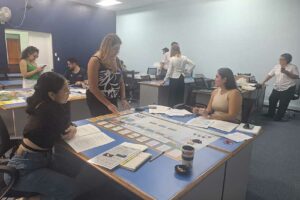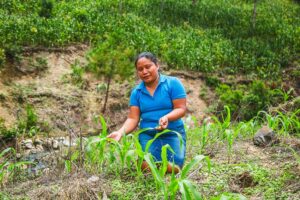CATIE introduces F1 hybrid coffee plants in the Central American Dry Corridor in the Trifinio region
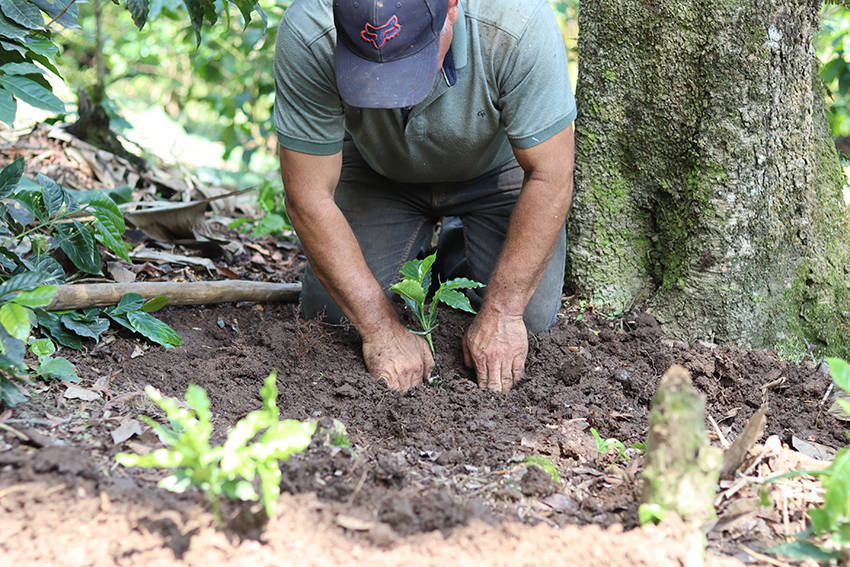
- The ESCALAR project, implemented by CATIE, began the introduction of F1 hybrid coffee plants as an alternative to adapt to climate change for coffee growing families in the Trifinio region.
December 8, 2023. As part of the Agricultural Innovations for Climate Adaptation in the Central American Dry Corridor promoted by the ESCALAR project: Scaling climate change adaptation solutions for resilience and migration reduction in the Central American Dry Corridor, implemented by CATIE (Tropical Agricultural Research and Higher Education Center), with support from the Swedish Cooperation, in 17 municipalities of the Trifinio region in El Salvador, Guatemala and Honduras, a process of introduction of F1 hybrid coffee plants to the territory began. The varieties are: Esperanza, Centroamericano and Milenio, which have been developed by the genetic improvement program led by PROMECAFE-CATIE-CIRAD since 1992.
In its pre-implementation phase, in 2022, the ESCALAR project carried out research to identify which Agricultural Innovations for Climate Adaptation were most in demand in the region, the results were as follows:
- Renovation of coffee plantations with hybrid coffee plants tolerant to rust and drought in agroforestry systems
- Production and enrichment of fodder for conservation and use in the dry season.
- Use of improved pastures for direct grazing or for cutting in silvopastoral systems.
- Artisanal production of seed of bean varieties tolerant to pests and diseases.
- Production of basic grains on hillsides in Kuxur Rum or Quesungual agroforestry systems.
- Rainwater harvesting with roofs and storage in Zamorano-type tanks.
- Rainwater harvesting through the collection of natural runoff in reservoirs.
- Production and use of bio-inputs for pest management and nutrition.
In 2023 the implementation of the different Agricultural Innovations for Climate Adaptation began, being the renovation of coffee plantations with hybrid coffee plants tolerant to rust and drought in agroforestry systems, the innovation with the highest demand in the region. Approximately 200 coffee growing families will apply on their land the renovation of coffee plantations with the aforementioned varieties in areas of 880 square meters, with the objective of learning about the management and productivity of these plants.
These plants have very important characteristics: tolerance to diseases such as rust and extreme climatic events such as drought, they are highly productive and precocious, which makes them an alternative for adaptation to climate change for coffee producing families in Central America. They are propagated by rooting cuttings, which is why they are imported directly from the CATIE Seed Bank in Costa Rica.
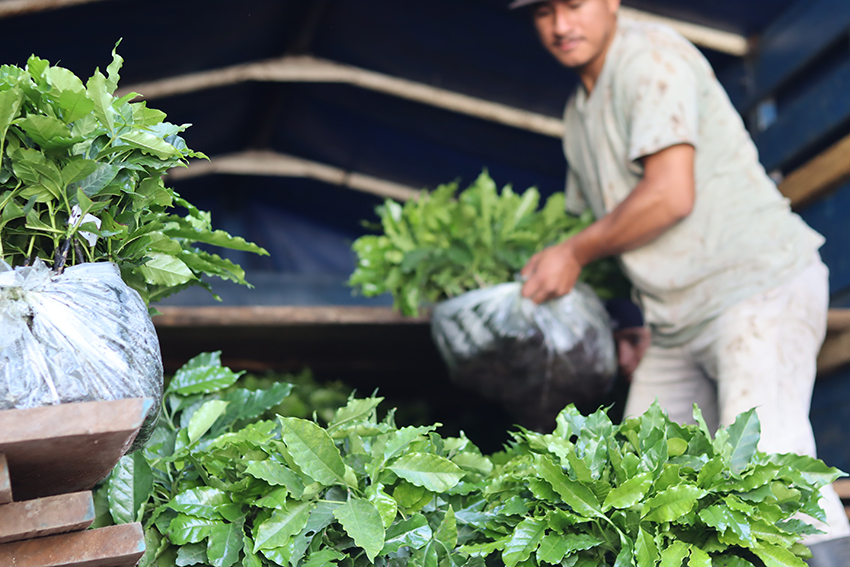
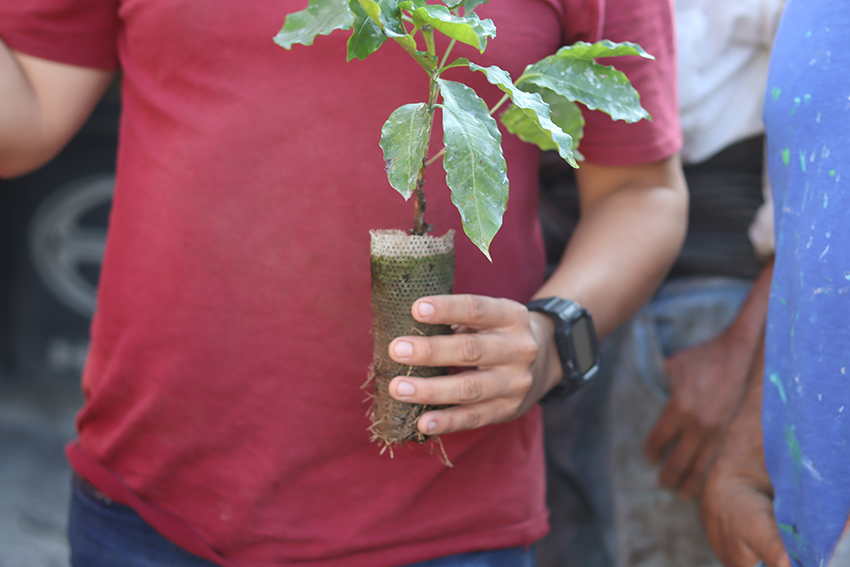
Arrival of coffee plants, F1 hybrids, in Guatemala
In order to multiply these plants, the Cooperativa Agrícola Integral Cafetales R.L. (CAINCAFE R.L. ), located in Esquipulas, and the Asociación de Productores de Olopa (APOLO), from Olopa, both implementing partner organizations of the ESCALAR project, located in Guatemala, will develop propagation nurseries; For this reason, Luis Diego Jiménez, leader of the Forest Seed Bank and of CATIE's coffee hybrid and variety propagation module, went on a working tour from November 19 to 23, where experiences were exchanged, The facilities of the aforementioned organizations were visited and training was provided on the origin and importance of coffee hybrids, multiplication methods, agronomic management of nurseries with bare root micro-stakes, among other relevant points, directed to technical personnel, nurserymen and growers of the organizations CAINCAFE R. L., CAINCAFE R., CAINCAFE R. L. and CAINCAFE R. S., among others. L., APOLO, from Guatemala, the Cooperativa Cafetalera Ecológica La Labor Ocotepeque (COCAFELOL), in Honduras, as well as officials from the Mesa del Café del Trifinio.
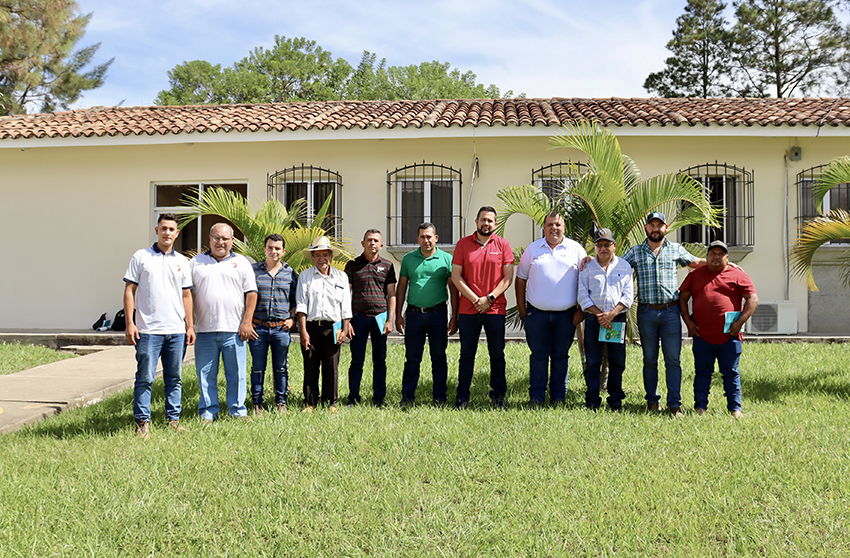
Participants from partner organizations implementing the ESCALAR project with Luis Diego Jiménez, from CATIE, in Esquipulas, Guatemala.
"Coffee hybrids are an important alternative for the region, providing high productivity conditions, tolerance to rust and drought. A hope to improve the productivity and quality of coffee growing, which is also affected by the poor distribution of rainfall and the lack of labor. However, it is necessary to know and improve locally the propagation technique, lower production costs of hybrid plants and work on the target market of this production", expressed Julio Lima, manager of the Coffee Board in Trifinio, after finishing the field tour.
It is projected that by 2026 more than 1,000 coffee producers will know and have experience in the management of this type of plants as part of the ESCALAR project.
More information:
José Gabriel Suchini
Specialist in Basic Grain Production SAFs and Use of Bioinputs
ESCALAR Project
CATIE
jsuchini@catie.ac.cr
Written by:
Donají García
Development Communication Specialist
ESCALAR Project
CATIE
Donaji.garcía@catie.ac.cr

